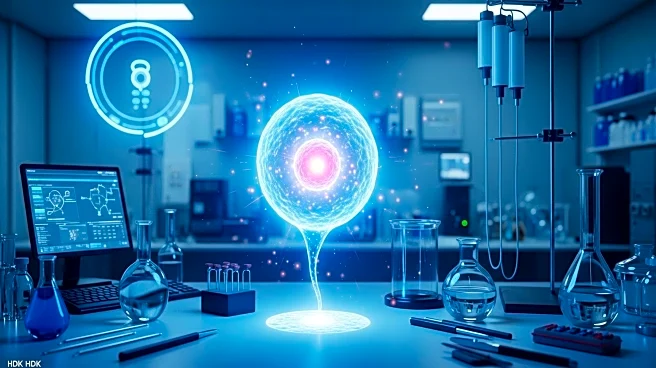What's Happening?
Researchers at the University of Zurich, led by Christian Tackenberg, have demonstrated that stem cell therapy can reverse stroke damage in mice. The study involved transplanting human neural stem cells into the brains of mice that had suffered a stroke. The stem cells not only survived but also transformed into neurons and communicated with existing brain cells, leading to regeneration of brain tissue. The therapy also resulted in the formation of new blood vessels and improved motor function in the mice. This breakthrough brings scientists closer to developing treatments for stroke recovery in humans.
Why It's Important?
Stroke is a leading cause of disability, with many survivors experiencing long-term impairments. Current treatments are limited, making the development of regenerative therapies crucial. The success of this stem cell therapy in mice suggests a potential new approach to treating stroke damage in humans. If applicable to humans, this therapy could significantly improve recovery outcomes for stroke patients, reducing the burden on healthcare systems and improving quality of life for survivors.
What's Next?
The research team is working on developing a safety switch system to prevent uncontrolled growth of stem cells in the brain. They are also exploring less invasive delivery methods, such as endovascular injection. Clinical trials using induced stem cells for other conditions, like Parkinson's disease, are already underway, and stroke could be the next target for clinical trials. Further research and development are needed to ensure the safety and efficacy of this therapy in humans.










